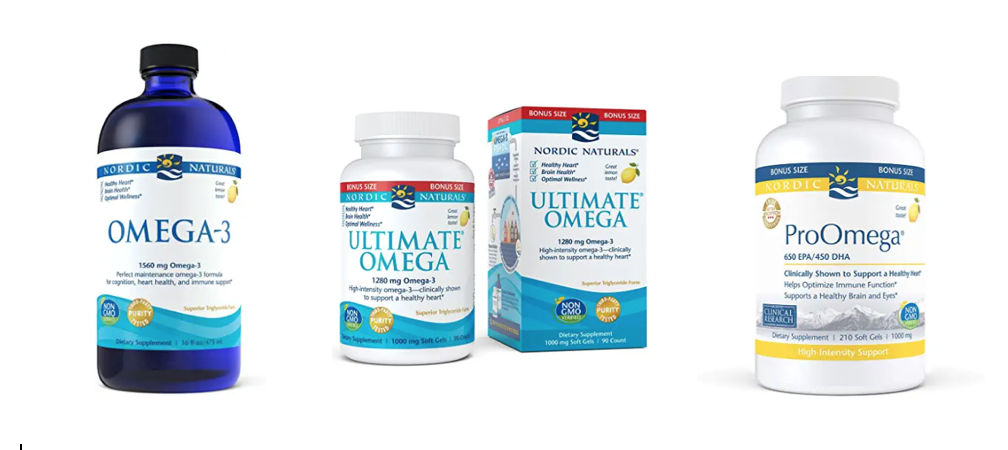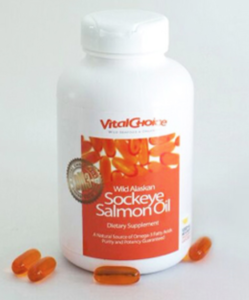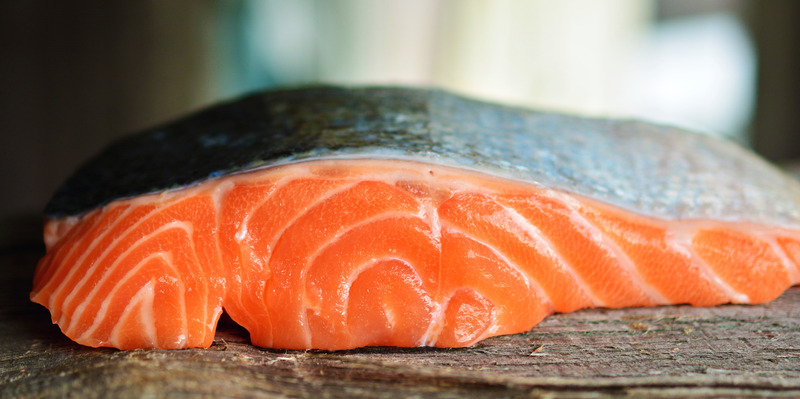When we think of stress, we often think of emotional strain resulting from challenging psychological situations. Most everyone has experienced anxiety and stress-related depression, but did you know that your body can experience stress from foods that you eat? This is a broad topic; I’ll narrow the focus in this article down to oxidative stress and omega fatty acids (omega-3 and omega-6).
The science can get deep fast, and readers who revel in the scientific details are encouraged to explore the referenced articles. After analyzing research papers on oxidative stress and omega-3 I have summarized a few key take-a-ways throughout this article.
Omega-3 fatty acids are long-chain polyunsaturated fatty acids. What’s important to remember is that omega-3 is an essential fatty acids because the human body cannot manufacture them. Omega-3s are polyunsaturated fats which are critical components of the membranes that surround every cell of your body and critical for cellular and metabolic health. The scientific term “polyunsaturated” refers to the omega-3’s chemical structure; “poly” means many and “unsaturated” refers to its double bonds.
Simply put, think of omega-3s as healthy fats.
There are two kinds of fats that your body can’t produce on its own: omega-6 and omega-3. There are three main types of omega-3 fatty acids: alpha-linolenic acid (ALA), eicosapentaenoic acid (EPA), and docosahexaenoic acid (DHA).
Omega-6s are also essential fatty acids that are our bodies need and it is believed that the omega-6 to omega-3 ratio should be around 1:1. The Western diet contains excessive amounts of omega-6 fats (i.e. fast foods, meats, dairy, many cooking oils) and the ratio jumps up in Western diets the ratio is 15/1. This imbalance can be corrected by consuming more omega-3 fats and less omega-6 fats.
A main component of omega-3s is used by the body for energy and tissue growth. Omega-3s are essential fatty acids in the human diet; they are found in fish oil and select plant-based foods.
Why Take Omega 3?
Omega-3s have significant health benefits. As a rule, omega-6 fats increase inflammation, while omega-3’s decrease it. Typically, people eat approximately 25 times more omega 6’s than omega 3’s. Fast foods, partially hydrogenated fats, most meats, and dairy products can all increase the inflammation in our bodies. Since inflammation is often an underlying cause for diseases, we don’t want to overdo the omega-6s, which come with fast foods, meats, dairy, and partially hydrogenated fats.
Omega-3s Reduce Inflammation
Long-term inflammation can contribute to almost every chronic Western illness, including heart disease and cancer.
Omega-3s Are Good For Heart Health

The Harvard Medical School published the results of two studies regarding omega-3s and heart health. It appears that taking smaller doses of omega-3s has minimal measurable effects, however, in their second study higher does prove highly effective in reducing the risk of death from heart disease.
Dr. Deepak Bhatt, a cardiologist, and professor of medicine at Harvard Medical School conducted The Reduction of Cardiovascular Events with EPA–Intervention Trial (REDUCE-IT). Bhatt’s study included over 8,000 adults (middle-aged and older) who had experienced a major heart event or at risk of one, including high triglyceride levels.
Some participants were given high doses of omega-3 (4-gram prescription) compared to the 25% reduction in the risk of dying from heart disease or another cardiovascular event when compared to the group that had the placebo.
The Diet and Reinfarction Trial (DART) was another study that measured select cardiovascular factors in 2,033 men. The results found that in men who recently experienced a heart attack, omega-3 PUFAs reduced the rates of death from all causes by up to 29%. The researchers reported that “Omega-3 PUFA supplementation is a reasonable alternative for those who do not consume fish, although fish is the preferred source of omega-3 PUFAs because it also provides additional nutrients, some of which are often under-consumed.”
Omega-3s Reduce Oxidative Stress
Consuming more omega–3 fatty acids may result in slowing down oxidative stress and neuroinflammation (inflammation of the nervous system including the brain) due to the production of metabolic byproducts (resolvins, neuroprotectins, and maresins). High levels of omega–3 fatty acids are needed in our diet for optimal health.
Omega-3 for Eye Health
- Promotes healthy eyes and vision
- Helps protect against age-related oxidative damage
- Helps maintain fluids in and around the eyes
- May help with eye dryness and redness
Omega-3s Support Mental Health
I have found that research on omega-3s often yields mixed results. To the positive, some researchers have reported that taking omega-3s may reduce symptoms of mental health conditions, depression, schizophrenia, and bipolar disorder. It may also reduce the risk of psychotic disorders for those who are at risk.
Omega-3 May Help Prevent or Delay the Onset of Dementia
Preliminary research has shown that a moderate intake of EPA+DHA (components of omega-3) may postpone cognitive decline in elderly men. Improvements in cognitive performance was shown in a study with 51-72-year old healthy participants.
How Do I Take Omega-3?
Eating fish is one way of getting enough omega-3s in your diet. The University of Wisconsin School of Medicine cautions that due to the high levels of mercury found in fish it may be safer to add fish oil supplements to your diet.
Dietary Sources of Omega-3 (animal & plant-based)
- Herring
- Salmon
- Oysters
- Tuna
- Dungeness Crab
- Krill
- Flaxseed Oil
- Flaxseeds
- Walnuts
- Pecans
- Walnut Oil
How Much Omega-3 Do I Need?

Fish oil is a good source of omega-3 fatty acids, and if you’re consuming a couple of servings of fish containing high levels of omega-3s you may be just fine. As mentioned in the video above from the National Geographic Society, levels of mercury in fish is of concern.
Where Can I Buy Omega-3 Rich Products?
High-Quality Omega-3 Supplements From Nordic Naturals
Nordic Naturals Ultimate Omega products come in many forms, from soft gels, liquid,
Nordic Naturals is at the forefront of sustainable and ethical practices in the natural products industry. They are committed to using only non-GMO ingredients. Nordic Naturals products are also gluten- and dairy-free with no artificial colors or preservatives. Every batch of Nordic Naturals fish oil is crafted from wild-caught, omega-rich fish from the freshest catch to create quality supplements.

High-Quality Supplements & Salmon from VitalChoice
Another great product line of omega-3 supplements is from VitalChoice.


Canned Sockeye Salmon from Vital Source is an excellent way to ensure you always have a supply of omega-3 rich food on hand. There is a beautiful assortment of Sockeye and other salmon species available from Vital Source.

For those seeking a great source of wild-caught fish for their source of omega-3s, VitalSource offers a year-round supply.


I hope that you find this information on omega-3s useful and that omega-3s become part of your stress-reducing diet. With the eye of a scientist, I spend considerable time researching products of the highest quality that tie into the general theme of HowToRelieveStressNaturally.com. The product links are affiliate links which means I earn a small commission should you choose to purchase the product when clicking on the above links. The price is the same for you. By doing this, it allows me to continue my research on product and services that are important to me and happy to share with you.



Thank you for your blog, Anne, I enjoy reading about the subject of nutrition and body/brain health, and enjoy reading from many sources (as you mentioned, reports on research may vary). One area that I am still unclear on–and have been thinking about it as many of my friends are having kids–is the importance of the omega 3s in brain development vs how safe it is for pregnant women to consume fish product (due to possible mercury contamination). What is your take on this issue? Are there safe ways to get an abundance of omega-3s for fetal development?
Ian, thank you for your comments and questions. When it comes to pregnancy, the fetus, and seafood, my opinion (not medical advice) is that it is best to minimize the amount of fish consumed. My diet is heavily plant-based and so my approach may be more conservative than other health care institutions. The Food and Drug Administration (FDA), the Environmental Protection Agency (EPA) and the 2015-2020 Dietary Guidelines for Americans recommend that pregnant women eat at least 8 ounces and up to 12 ounces (340 grams) of a variety of seafood lower in mercury a week.
If pregnant women are going to eat fish, I would follow the advice of the Mayo Clinic: avoid large, predatory fish in order to reduce your exposure to mercury, and avoid shark, swordfish, king mackerel or tilefish. https://www.mayoclinic.org/healthy-lifestyle/pregnancy-week-by-week/in-depth/pregnancy-and-fish/art-20044185. Also consider sardines, which are further down the food chain.
There are great plant-based sources for omega-3 including the ones mentioned above. Flaxseed oil, walnuts, chia seeds, and more. The Cleveland Clinic has a great patient information sheet that goes further into plant-based omega-3s.
https://my.clevelandclinic.org/health/articles/17651-plant-sources-of-omega-3s